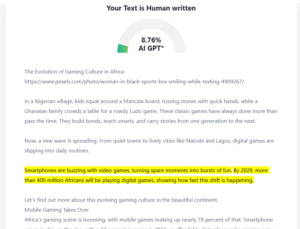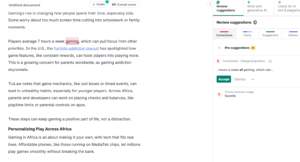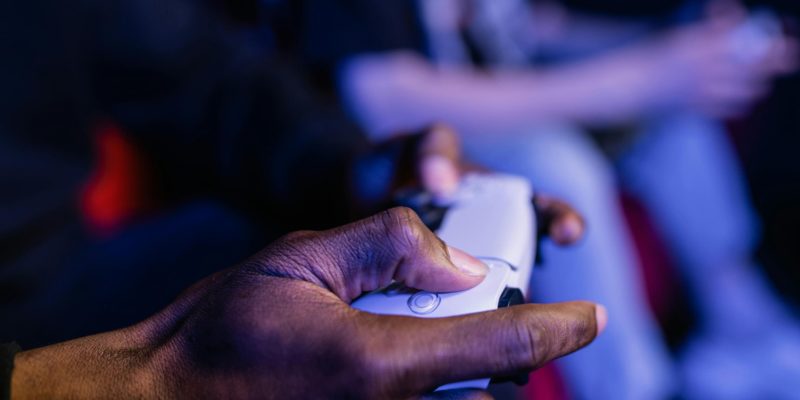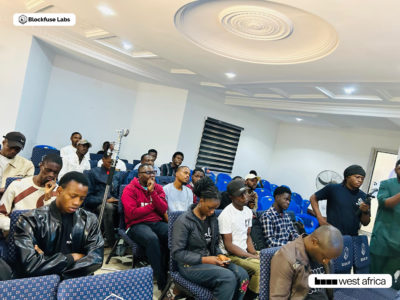In a Nigerian village, kids squat around a Mancala board, tossing stones with quick hands, while a Ghanaian family crowds a table for a rowdy Ludo game. These classic games have always done more than pass the time. They build bonds, teach smarts, and carry stories from one generation to the next.
RELATED: With enterprise AI tools on the rise, more than 235,000 tech employees may lose their jobs in 2025
Now, digital gaming is reshaping how people across Africa play. From quiet towns to lively cities like Nairobi and Lagos, digital games are slipping into daily routines.
Smartphones are buzzing with video games, turning spare moments into bursts of fun. By 2029, more than 400 million Africans will be playing digital games, showing how fast this shift is happening.
Let’s find out more about this evolving gaming culture in the beautiful continent of Africa.
Mobile Gaming Takes Over
Africa’s gaming scene is booming, with mobile games making up nearly 78 percent of that. Smartphone usage is also on the rise, with a 24 percent increase in 2024, as affordable data plans make gaming easy.
In cities across Nigeria and Kenya, young people are hooked on games like Call of Duty: Mobile and Candy Crush. Mobile payment systems like M-Pesa make it easy to grab in-game extras without needing a credit card, letting millions join the fun.
What’s fueling this boom is how easy it is to play. Free-to-play games suit slim wallets, and local creators are building titles that hit home with players.
Esports and the Competitive Spark
Esports is lighting up Africa’s gaming industry with a projected revenue of $83 million by 2029. Events like the Carry1st Africa Cup, featuring Call of Duty: Mobile, pulled in thousands of players and fans in 2024.
In Nigeria, six players made waves by competing in Ireland’s COD: Mobile championship, proving African gamers can shine on global stages.
Challenges like unreliable internet in rural areas and limited funding for teams make growth tricky. But companies are stepping in, hosting local tournaments and creating spaces for players to train and connect. These efforts are building a foundation for esports to thrive, giving young gamers a shot at turning their skills into something bigger.
Gaming’s Impact on Daily Life
Gaming’s rise is changing how people spend their time, especially kids. Some worry about too much screen time cutting into schoolwork or family moments. Players average 7 hours a week of gaming, which can pull focus from other priorities.
There are many examples of the downsides of excessive gameplay. In the U.S., the Fortnite addiction lawsuit has spotlighted how game features, like constant rewards, can hook players into playing more. This is a growing concern for parents worldwide, as gaming addiction skyrockets.
TruLaw notes that game mechanics, like loot boxes or timed events, can lead to unhealthy habits, especially for younger players. Across Africa, parents and developers can work on placing checks and balances, like playtime limits or parental controls on apps.
These steps can keep gaming a positive part of life, not a distraction.
Personalizing Play Across Africa
Gaming in Africa is all about making it your own, with tech that fits real lives. Affordable phones, like those running on MediaTek chips, let millions play games smoothly without breaking the bank.
Many platforms now let you tweak menus to jump straight to your favorite games, like FIFA for Nigeria’s soccer fans or puzzles in Kenya.
In vibrant cities like Accra or Cape Town, players add headsets or controllers, turning simple setups into immersive escapes. These mobile-driven customizations let Africans shape gaming to reflect their lives, cultures, and passions, creating a deeply personal connection to play.
Smartphones use AI to personalize gaming, with many platforms adopting this in 2024. Players can tweak interfaces to match their vibe, like customizing menus for quick access to favorite titles.
The Road Ahead for African Gaming
As one of the fastest-growing economies, Africa’s gaming industry is full of untapped potential.
Africa’s gaming market is on track to hit $3.72 billion by 2029, growing fastest in places like Ethiopia and Ghana. Studios like Qene Games are crafting titles like Kukulu, blending fun with lessons about local traditions. With 3,000 ethnic groups and 2,000 languages, developers have a chance to tell stories that speak to Africa’s diversity and catch the global eye.
This culture is a vibrant mix of old traditions and new tech. From Mancala boards to Call of Duty matches, the continent is crafting a unique gaming identity.
Developers and players can shape a gaming future that’s as diverse and connected as Africa itself. That future will be built through local storytelling, smart investment, and healthy play habits.


































